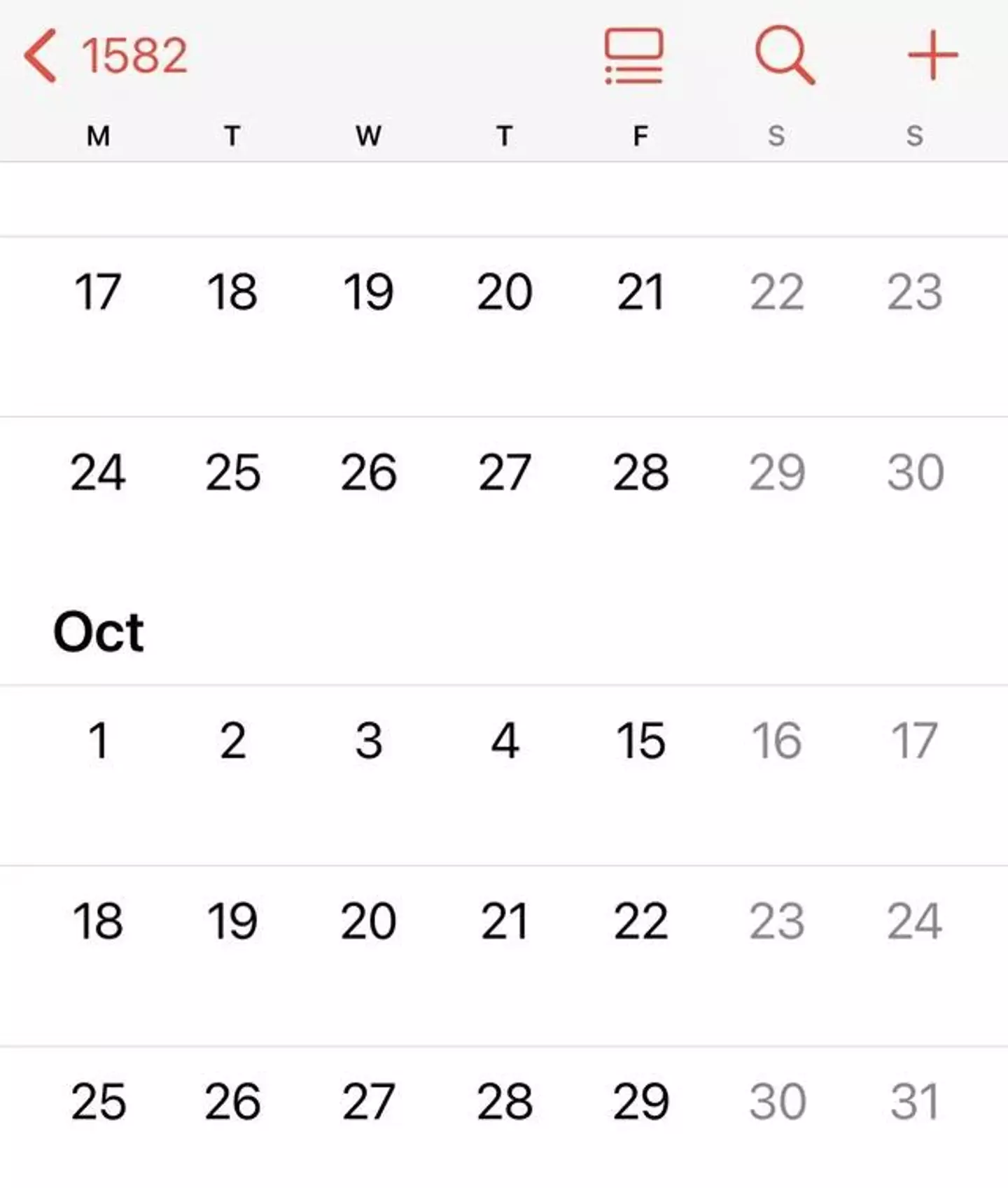


If you find yourself killing time and for some reason decide to scroll all the way back on your phone calendar to the year 1582, you might be surprised by what you find there.
In fact, if you go to October of that year in particular, you will notice that bizarrely there are 10 whole days missing from the month.
No, this is not a glitch or a bug with your iPhone, those days actually don’t exist at all.

Advert
The day of October 4 1582 followed directly into October 15 - and there’s an interesting reason why.
In October 1582, the Catholic church made the switch from the Julian calendar to the Gregorian calendar.
Both are solar calendars with 12 months in them that range from 28 to 31 days and both have leap years but the main difference between them is when the leap year takes place.
While both calendars add a day to the calendar once every four years, the Gregorian calendar doesn’t do it if the year is divisible by 400.
Advert
This might not sound like a big deal but for the Catholic church, the Julian calendar messed up when Easter would be.
This is because since 325 CE, Easter has been observed on the first Sunday after the first full moon after the spring equinox on March 21.
But as time went on, the spring equinox started to drift from the original date and in the 1500s, it fell on March 11.
That’s when Pope Gregory XIII stepped in and introduced the Gregorian calendar in order to make sure that the dates aligned with the motions of the sun.
Advert
So this meant that we had to lose a few days.
The Cultural Tutor explained the event on X, formerly Twitter, writing: “And in 1582 Gregory issued a decree called ‘Inter gravissimas’.
“It stated that the new, modified version of the Julian Calendar was to be adopted that year.
“The change would happen in October, when Thursday 4th would be followed by Friday 15th, to correct the 10 days of drift.”
Advert
It was decided that October would be the month to lose 10 days as it didn’t clash with any major events in the Christian calendar.
The people of 1582 went to sleep on October 4 and awoke to October 15.
As for the reason why our iPhones go back that far on the calendar app? That’s another mystery.